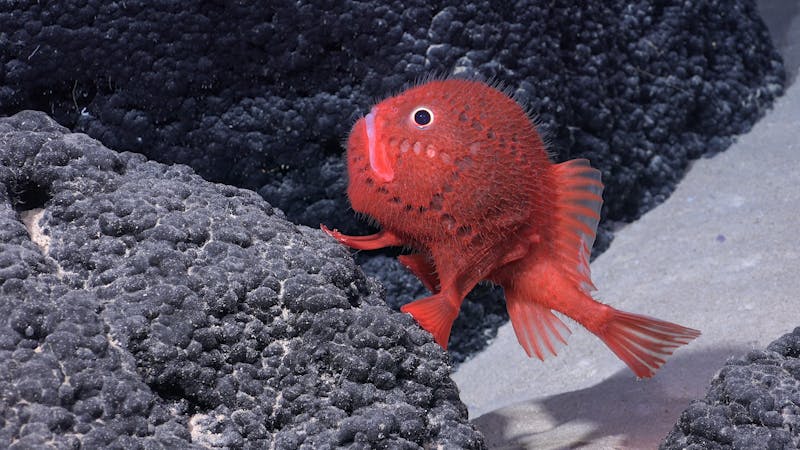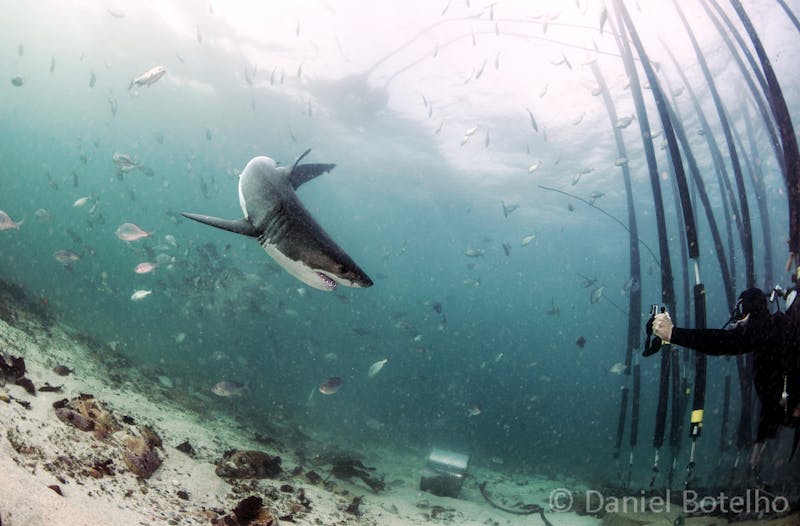Turning the tide for the world’s oceans

It was a year of rough seas for the world’s oceans.
Despite some progress on both fronts, overfishing and pollution persisted, while waters continued to warm at a rate that scientists “cannot fully explain,” according to Johan Rockström, chief scientist at Conservation International.
But that didn’t stop conservationists and communities from working to protect the seas.
This year, Conservation News brought readers to the depths of unexplored deep-sea mountain ranges, a “superhighway” for manta rays, and artificial underwater forests helping to keep sharks — and people — safe.
Here are some highlights from 2024.
A deep-sea expedition funded by Conservation International has uncovered the secrets of a vast underwater mountain system off the coasts of Chile and Peru. During the monthlong expedition, scientists explored a series of seamounts in the southeastern Pacific called the Salas y Gómez and Nazca ridges. Using underwater robots, researchers say they may have discovered more than 100 never-before-seen species.
“These findings just blew us away,” said Erin Easton, the expedition’s lead scientist. “In some areas, we were finding species we’d never encountered before every few meters.”

Over the last century, whale sharks — the world’s largest fish — have vanished at an alarming rate due to overfishing. Even as global protections increased, their numbers kept dwindling.
“Scientists were scratching their heads, wondering what the heck was going on,” said Conservation International marine biologist Mark Erdmann. The likely culprit: collisions with cargo ships. Now, a new study says climate change will make the deadly encounters even more common. As oceans warm, whale sharks are moving further from the equator, straight into the path of some of the world’s busiest shipping lanes. Thankfully, there is a clear solution to the problem that’s already helping protect endangered whale species — slowing ships down.

Nearly a third of fishing lines are lost or discarded at sea, where they spread on tides and currents, killing or injuring hundreds of thousands of whales and dolphins. Over the last two decades, Conservation International’s marine and diving safety officer, Edgardo Ochoa, has tackled this problem head-on — hauling thousands of pounds of abandoned fishing gear from the ocean floor. But with far more “ghost” nets than any one person can handle, Ochoa rallied nearly 100 divers to join the fight.
Surf breaks worldwide are beloved for their natural beauty and the thrill of riding that next big swell. But new research reveals they’re more than just playgrounds for surfers — they’re unsung heroes in the fight against climate change.
That’s because many surf breaks are surrounded by ecosystems like mangroves, seagrasses and coral reefs, which store vast amounts of carbon that would otherwise heat the planet if these areas were damaged or developed. Scott Atkinson, a surfer and Conservation International’s Surf Conservation lead, spoke about the surfers rallying to protect these vital — and thrilling — ecosystems.
For manta rays, Raja Ampat is a refuge. This remarkable archipelago deep in West Papua, Indonesia, is the only area in the world where manta ray populations are growing, thanks to years of strengthened marine protections. But new research from Conservation International and its local partner, Konservasi Indonesia, is renewing concerns about a threat to these pristine waters: nickel mining. Experts worry that rising prices for the precious metal could imperil a critical habitat just outside of Raja Ampat’s vast marine protected areas.
Near beaches where sharks are known to roam, fear-driven myths about them lead governments to install ineffective barriers that don’t ward off sharks — but can be deadly for turtles, dolphins and other marine life. A South African company, SharkSafe Barriers, is charting a new course. Backed by Conservation International’s investment fund, CI Ventures, they’ve created a groundbreaking solution: magnetic barriers that mimic underwater kelp forests to keep sharks at bay, while allowing safe passage for other marine life.
Conrad Newton is a communications coordinator at Conservation International. Will McCarry contributed to this report. Want to read more stories like this? Sign up for email updates. Also, please consider supporting our critical work.
Source link

?&auto=compress&auto=format&fit=crop?&auto=compress&auto=format&w=800)





